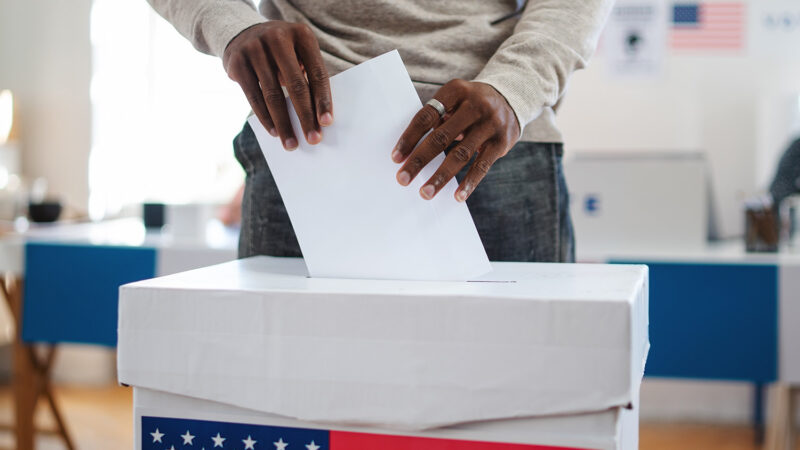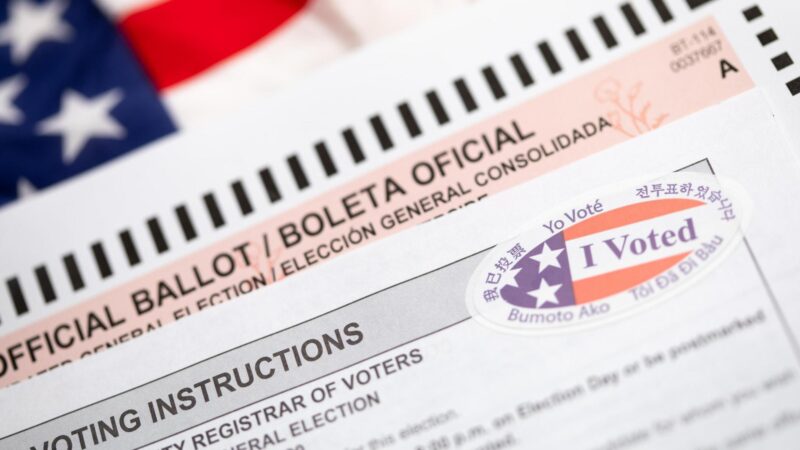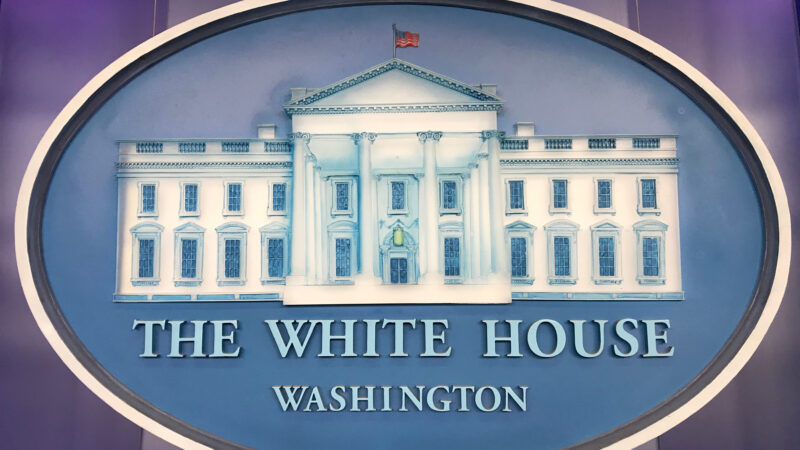Nicole Bibbins Sedaca serves as the Executive Vice President of Freedom House, where she oversees the organization's strategy and programs. Prior to joining Freedom House, Ms. Bibbins Sedaca served as the Deputy Director of Georgetown University’s Master of Science in Foreign Service (MSFS) program
How to End America’s Partisan Meltdown
- September 14, 2021
This essay is part of Protect Democracy’s Democracy Endgame series, in which leading thinkers were invited to offer their own views on possible paths out of the United States’ democratic crisis. This essay reflects solely the viewpoint of its author and not of his affiliated institutions or of Protect Democracy.
Perhaps surprisingly, polarization in U.S. politics has actually increased public engagement in democracy. A majority of Americans contribute money to candidates, attend political rallies, or work for political or civic campaigns. Voter turnout reached an all-time high in 2020, with multiple demographic groups raising their participation. Even political leaders are increasingly speaking about the importance of the country’s democratic institutions.
While this trend is important, political activism will not necessarily translate into a stronger democracy—unless and until Americans recognize that how they engage is just as important as whether they engage in public affairs. In short, Americans must be just as dedicated to maintaining and upholding the integrity of our democratic system as they are to advancing their partisan interests.
Winning at all costs
Engaged Americans actually risk weakening our democracy if they bend rules to advance their views, deny the right of others to hold opposing views, or refuse to accept the legitimacy of democratic processes when they dislike the results. On a daily basis, we see examples of such behavior from politicians as well as civic leaders reflecting their supporters: from the drafting of laws that make it more difficult for some Americans to vote to the gerrymandering of congressional district maps, from threats to pack the Supreme Court to using “cancel culture” to silence others’ views. These leaders are undermining the very foundations of our democracy, often while arguing that they are trying to save it.
Numerous studies have indicated that ordinary Americans are also increasingly willing to compromise democratic norms and institutions for the sake of their political goals. A 2020 survey by Yale University’s Matthew Graham and Milan Svolik showed that only about “3.5 percent of voters will defect from a candidate whom they otherwise support, but who does something destructive of democratic norms.” According to a 2020 Pew study, “Republicans and Democrats overwhelmingly say it is very important for elected officials in the opposing party to treat officials from their own party with respect. They are much less demanding when it comes to members of their party treating the other side with respect.”
We are losing sight of the responsibility of each American to uphold our democratic institutions and principles, not just secure victory for Democratic or Republican agendas.
It may seem strange to highlight this challenge at a time when the country is contending with more pressing and dramatic affronts to its democratic order, namely the denial of the 2020 presidential election results and the related January insurrection at the Capitol. While our nation has unquestionably been shaken by these phenomena, we must recognize that they are only the most extreme manifestations of a much broader erosion in democratic norms. There is no moral equivalency between violent insurrectionists on the one hand and peaceful partisan activists on the other, but we cannot pretend that addressing political violence alone will restore the health of American democracy.
Preventing a race to the bottom
Across the political spectrum, leaders and citizens are justifying their own undemocratic actions by citing the real or imagined abuses of their opponents. Breaking this cycle of blame shifting is particularly difficult given that so many people in one party—today’s Republican Party—have clearly embraced the fallacious denial of the 2020 election results, ignored or downplayed the reality of the January violence, and pursued flawed voting restrictions at the state level. This lopsided culpability has left many centrists and left-leaning leaders with fewer democratic partners on the right, and with a fairly strong case as to why they would be justified in a less-than-democratic response. While the imbalance is real, there is nonetheless no justification for either side to take shortcuts that undermine democratic norms and institutions.
Consider the cost of undemocratic measures to advance one party’s interests. If the party in power in a given setting unilaterally changes election rules in its favor, for example, it can expect the same treatment whenever and wherever it is in the minority, raising the stakes of each contest and creating new incentives to win by any means necessary. This is the path to instability, violence, and authoritarian rule.
Ending a majority party’s use of such undemocratic measures to advance their platform is unquestionably the right thing to do for a healthy democracy. But it is also in the self-interest of all parties to pursue such a strategy in the short and long term, given that each will undoubtedly shift from being in the majority and minority over time.
Respecting democratic norms and political pluralism does not mean agreeing with opposing views, nor does it require excusing or remaining silent in the face of ideas that are undemocratic, racist, or extremist. It simply means rejecting illiberal practices in one’s reactions to them, and relying on democratic processes to address the country’s daunting challenges.
Unfortunately, even the notion of what is democratic has become entangled with partisan identity. For many Americans, any action that advances what they agree with is perceived as democratic and legitimate, and any action that advances the agenda of the other party must therefore be undemocratic and illegitimate.
To reconnect with the true meaning of democratic principles, we must acknowledge and protect those institutions and norms that provide space for a range of views and policy options, including those with which we disagree. Democracy supporters are distinguished by their commitment to fair structures, rules, and processes—regardless of whether they are dissatisfied with a given short-term outcome. Once they begin to recognize one another on this basis, believers in American democracy can work together to protect and improve our system, even as they continue to debate and compete on other matters.
What democracy looks like
So how can Americans contribute to the important work of reversing partisan polarization and strengthening democratic institutions?
Political leaders must be willing to critique colleagues in their own party when they violate democratic principles and codes of behavior, underscoring the fact that the rules are meant to be applied impartially and universally. Rather than defending gerrymanders in one state while denouncing them in another, for example, they should work – ideally across party lines – to end the practice altogether.
Elected officials must also oppose structural or legal changes that might benefit them in the short term while degrading the system in the long term, weakening checks and balances and damaging public faith in democracy as a whole. In the case of Supreme Court reform, rather than engaging in tit-for-tat attempts to entrench an ideological majority, democracy supporters should reach consensus on a rule-based solution that would restore predictability, fairness, and integrity to the appointment process.
More broadly, lawmakers and chief executives must regularly and vocally acknowledge the fundamental rights of their political opponents, even as they express disagreement with a particular view. Journalists must report on politicians’ adherence to democratic principles, consistently and regardless of party, and must do so as a regular course, not just around elections. And voters must ultimately hold their leaders accountable, supporting candidates based on both their platform and their commitment to a level playing field.
These sorts of actions may seem unlikely in the current climate, and progress will undoubtedly be challenging. But it remains eminently possible.
Americans have the opportunity and responsibility to show that they are committed to both our democracy and their interests.
A story from not so long ago reminds us what this could look like.
In 2008, rivals John McCain and Barack Obama were in the midst of a heated presidential campaign. At a town hall meeting, a Minnesota woman said to McCain, “I can’t trust Obama. I have read about him and he’s not… he’s not… he’s an Arab.”
Immediately and decisively, Senator McCain rejected the false information, along with the undemocratic notion that someone’s ethnic heritage would make them unfit for leadership. McCain affirmed these democratic basics while pivoting to the different policy approaches that he and Obama were presenting to voters.
He said very simply, “No, ma’am. He’s a decent family man, citizen, that I just happen to have disagreements with on fundamental issues. That’s what this campaign is all about.”
That is also what democracy is all about, and we must choose to fight for it.
This essay reflects solely the viewpoint of its author and not of her affiliated institutions or of Protect Democracy.
Related Content
Current United States Authoritarian Threat Index score: 2.5/5 Significant Threat •
-
Elections 2.8/5 • Significant Threat
-
Rhetoric 3.2/5 • Severe Threat
It can happen here.
We can stop it.
Defeating authoritarianism is going to take all of us. Everyone and every institution has a role to play. Together, we can protect democracy.
Donate
Sign Up for Updates Sign Up for Updates
Explore Careers Explore Careers
How to Protect Democracy How to Protect Democracy



